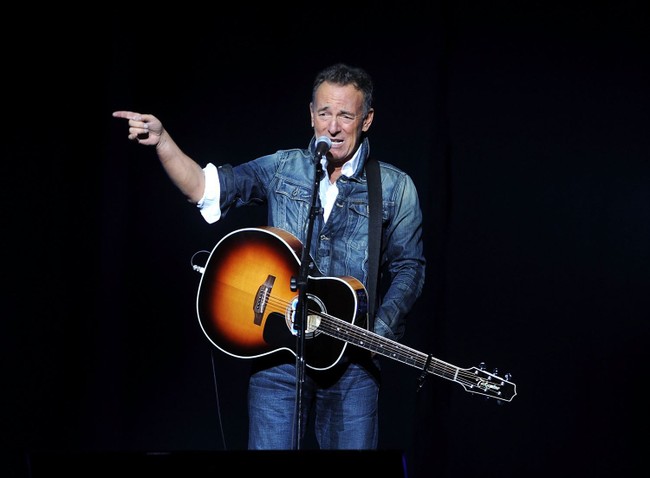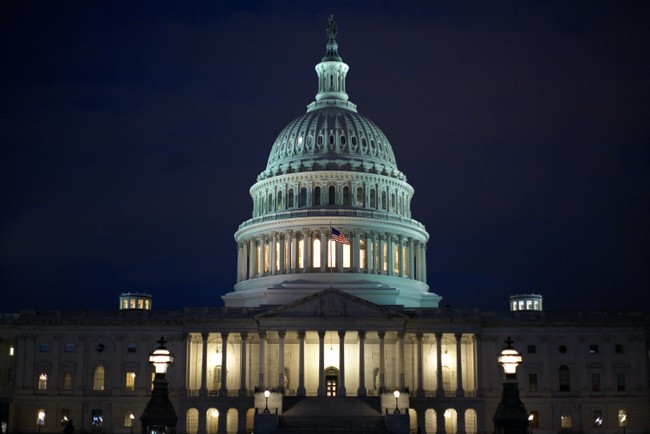
Harvard is under well-deserved scrutiny for how administrators chose to dispense — or, more importantly, not dispense — disciplinary action against students involved in a disruption of a Chinese diplomat’s speech earlier this year.
The incident occurred in April, when Chinese Ambassador to the United States Xie Feng spoke at Harvard Kennedy School’s China Conference, an annual event organized by the student group Greater China Society. Students for a Free Tibet and Coalition of Students Resisting China held a demonstration outside the event with a few dozen protesters from the university and Boston.
During Xie’s speech, six protesters disrupted the event, half of whom were Harvard students. Five left after being escorted out of the room — all but one by security staff — and one left of their own volition.
Harvard undergraduate student Cosette Wu engaged in the most notable disruption of the speech. In an incident that ultimately lasted less than 30 seconds, Wu stood up while Xie spoke, accused him of having hands “painted with blood,” and asserted that he had violated the freedoms of the people of Hong Kong and Taiwan. About ten seconds into Wu’s disruption, another attendee approached Wu and grabbed her arm with both hands, dragging her out of the event room and to a nearby security guard. Wu stumbled and appeared to resist his grip as she continued to yell at Xie.

Wu ultimately did not press charges against the attendee who grabbed her, but Harvard Police logged the attendee’s treatment of Wu as an assault. That attendee, reported by The Free Beacon and other outlets as Zou Hongji. Harvard did not disclose his name, but confirmed he was a Harvard Graduate School of Education master’s student and member of Harvard’s Chinese Students and Scholars Association chapter. (CSSA chapters have been linked to a number of attempts to tamp down on criticism of the Chinese government on college campuses.) He graduated shortly after the incident.
Despite engaging in what the university confirmed was a violation of the graduate school’s Policy on Physical Violence, the attendee who dragged Wu faced no official sanctions. Instead, he ultimately received what looked more like an apology than a disciplinary warning.
How did that happen?
Documents reveal uneven enforcement of disciplinary policies
On July 1, the House Select Committee on the CCP opened an inquiry into the events, seeking information about Harvard’s handling of the violent response to Wu after the incident received attention on social media. The Select Committee also suggested an “event organizer approached” another protester and “sought the names of students who challenged the Ambassador.”
The documents from the investigation, released this month, shed some light on the incident. And Harvard does not come out looking favorably.
First, the disruption. The three Harvard undergraduate students, including Wu, who briefly disrupted the speech were placed on a three-day disciplinary probation by the Office of Academic Integrity and Student Conduct for “inappropriate social behavior,” though an administrative board subcommittee investigating the students had recommended only admonishment. The offenses will not appear on these students’ transcripts, but may be disclosed to graduate schools “under certain circumstances.”
But the real shock is how Harvard absolved the disciplinary case against the graduate student who violently grabbed Wu and dragged her out of the venue.
Harvard is once again facing sharp questions about its relationship with the Chinese government. It only has itself to blame.
In an email to dean Martin West shortly after the incident, an assistant dean notified West the Student Affairs office met with the graduate student, reported as Zou Hongji, who claimed to be “acting on the direction of a faculty member who indicated that they could not have those disruptions during the Ambassador talk.” The assistant dean also reported first being notified of the incident when the graduate student alleged that his family had been doxxed when video of it went viral and that the student sought “logistical and mental health support” from the university.
In subsequent emails, West was unable to ascertain identifying information about the faculty member on whose orders the graduate student claimed to have acted. West did, however, reach a decision: He was ultimately “inclined not to refer the matter” to the Committee on Rights and Responsibilities, instead opting for a letter of censure, as “the internet has probably punished” the assailant “enough at this point.”
And on May 22, West confirmed in a letter to the assailant that he decided to impose no sanctions, even though video and police reports detail his behavior which West admits is “in violation of the [Harvard Graduate School of Education] Policy on Physical Violence” as well as other standards of conduct.
The local impact of foreign censorship laws
News
For the last several years, FIRE has been covering the complex relationship between American higher education and global censorship.
But given that the student “had received guidance from event organizers to intervene as you did” — ignoring that emails show that West could not confirm the existence of this guidance — West wrote that the assault was “understandable in that context.”
Then, shortly after acknowledging that the student engaged in an act of violence against a protester’s brief disruption, West lamented his “deep[] regret” for the “significant harm” the student and his family have experienced in the aftermath of the incident. West also added that he was “grateful” to the student’s contribution to the master’s program and “sorry” the student wouldn’t be in attendance at the Commencement ceremony on campus to celebrate his accomplishments.
So while Harvard ultimately chose to issue a harsher penalty than the investigating subcommittee recommended against the students who disrupted the Chinese ambassador, it chose to issue no penalty at all — and instead expressed its regret — to the student who, under Harvard policy, physically assaulted one of those protesters.
How badly did Harvard mismanage these charges?
As FIRE has stated at length over the years, universities must respond to sustained disruptions — that is, actions beyond occasional fleeting remarks or comments that render an event unable to proceed as planned. Depending on the circumstances and severity, appropriate responses may include action by campus police (who did remove protesters from the venue in this case) or subsequent disciplinary investigations into students allegedly involved, with the necessary due process protections afforded to the accused. (That has not always been the case in these and other proceedings.)
Appropriate responses to disruption most certainly do not include allowing — or, if true, directing — fellow students to physically assail disrupters and drag them out of the venue.
Without knowing more about how Harvard has handled similar disruption cases, it’s difficult to ascertain whether the temporary probation issued to the three student protesters is in line with university policy or if this punishment is disproportionate.
But the mismanagement of the charge against the graduate student looks fairly clear cut. And baffling, unless Harvard regularly apologizes to brawlers instead of punishing them.
It’s deeply peculiar that Harvard not only rubber-stamped what it recognized to be a violation of institutional policies on violence but then apologized to the student responsible for the “significant harm” he had since experienced after videos of his behavior went viral. That’s a bizarro world conception of “harm.”
It certainly looks like Harvard excused a politically-motivated act of violence against a protester, but treated the protester’s brief disruption more harshly than an investigating committee recommended. If there is a valid and appropriate justification for Harvard’s disparate handling of these disciplinary cases, it eludes me.
Why is this significant?
There is no specific evidence that Harvard acted the way it did because of the content of the protesters’ outbursts and the accusations they hurled against a high profile target from the Chinese government. But the university’s strange decision to allot punishment only to the victim of what it confirmed was an act of violence, rather than the perpetrator of that violence, does not paint the administration in a good light.
This is not the first time I’ve found university administrations acting inappropriately around these issues, either — nor is it even the first time that these uncomfortable questions have been asked about Harvard and China.
In 2015, Harvard Law School Vice Dean for International Legal Studies William P. Alford pressured Chinese dissident and human rights lawyer Teng Biao to postpone an event he was planning at the campus because it could “embarrass” Harvard and threaten its opportunities in China.
The reason? Teng’s event would’ve overlapped with then-Harvard president Drew Faust’s trip to Beijing — where she was meeting Chinese President Xi Jinping.
Emerson College Pooh-Poohs free speech: Deflecting criticism over censorship of ‘China Kinda Sus’ stickers, Emerson hides tweets critical of China’s government
I’ll have a book out next year, Authoritarians in the Academy, detailing the many challenges authoritarian governments pose to freedoms in American higher ed and why Harvard is not alone in facing questions about its uncomfortable relationship with expression about China. Unfortunately, this is an industry-wide problem and it’s shown no signs of slowing.
We don’t know all of the details for why Harvard acted the way it did, and the student conduct process can often be murky and opaque. But what we do know is that: 1) A protesting student briefly disrupted a Chinese diplomat’s speech, accusing him of having blood on his hands; 2) another student took it upon himself to manhandle the protester in what an academic dean confirmed was an act of violence in violation of university policy; and 3) the nonviolent offender got a black mark on her record while the student who resorted to violence received an apology for the reputational harm he had experienced.
Harvard is once again facing sharp questions about its relationship with the Chinese government. It only has itself to blame.
This article was originally published by The Fire. We only curate news from sources that align with the core values of our intended conservative audience. If you like the news you read here we encourage you to utilize the original sources for even more great news and opinions you can trust!










Comments